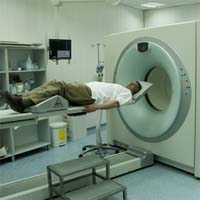Mesothelioma Survival Impacted by Lack of Surgery
A team of surgical oncologists say failure to treat peritoneal mesothelioma with surgery is costing too many patients their lives. Researchers from the Medical College of Wisconsin studied survival statistics for more than 1,500 patients with malignant peritoneal mesothelioma, a form of mesothelioma that occurs in the abdomen. They concluded that many more of them could survive longer if they were treated with surgery. Using the Surveillance, Epidemiology and End Results (SEER) database, the research team identified 1,591 patients diagnosed with peritoneal mesothelioma between 1973 and 2010. The median age of the studied patients was 74 years and most had metastatic disease, meaning that their mesothelioma had spread beyond the peritoneal membrane that lines the abdomen. Of those 1,591 peritoneal…









